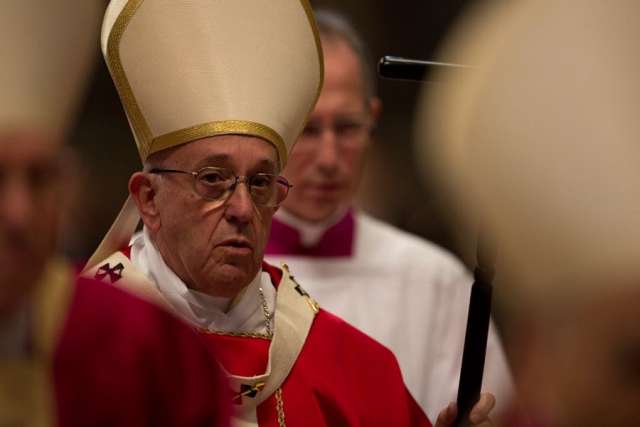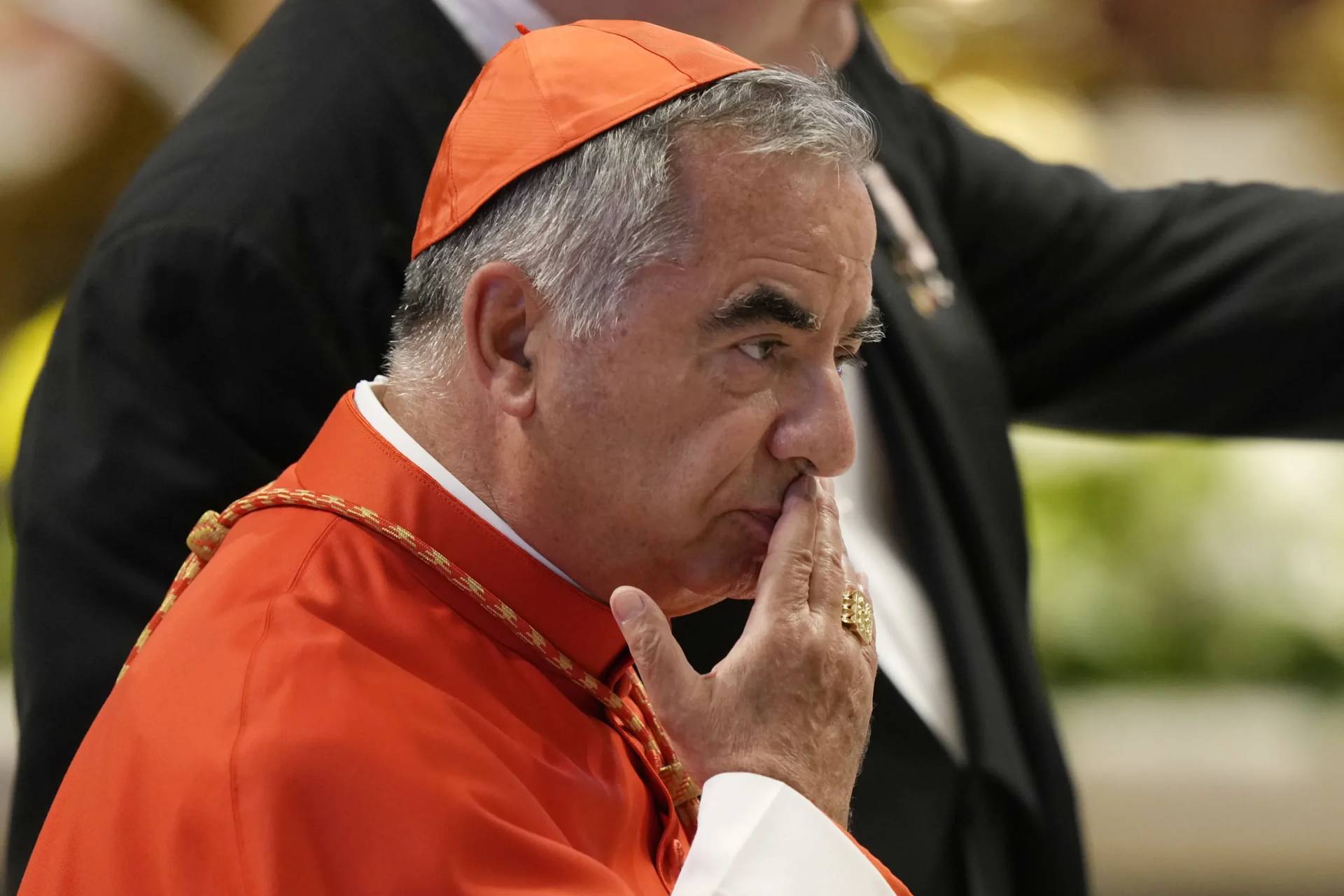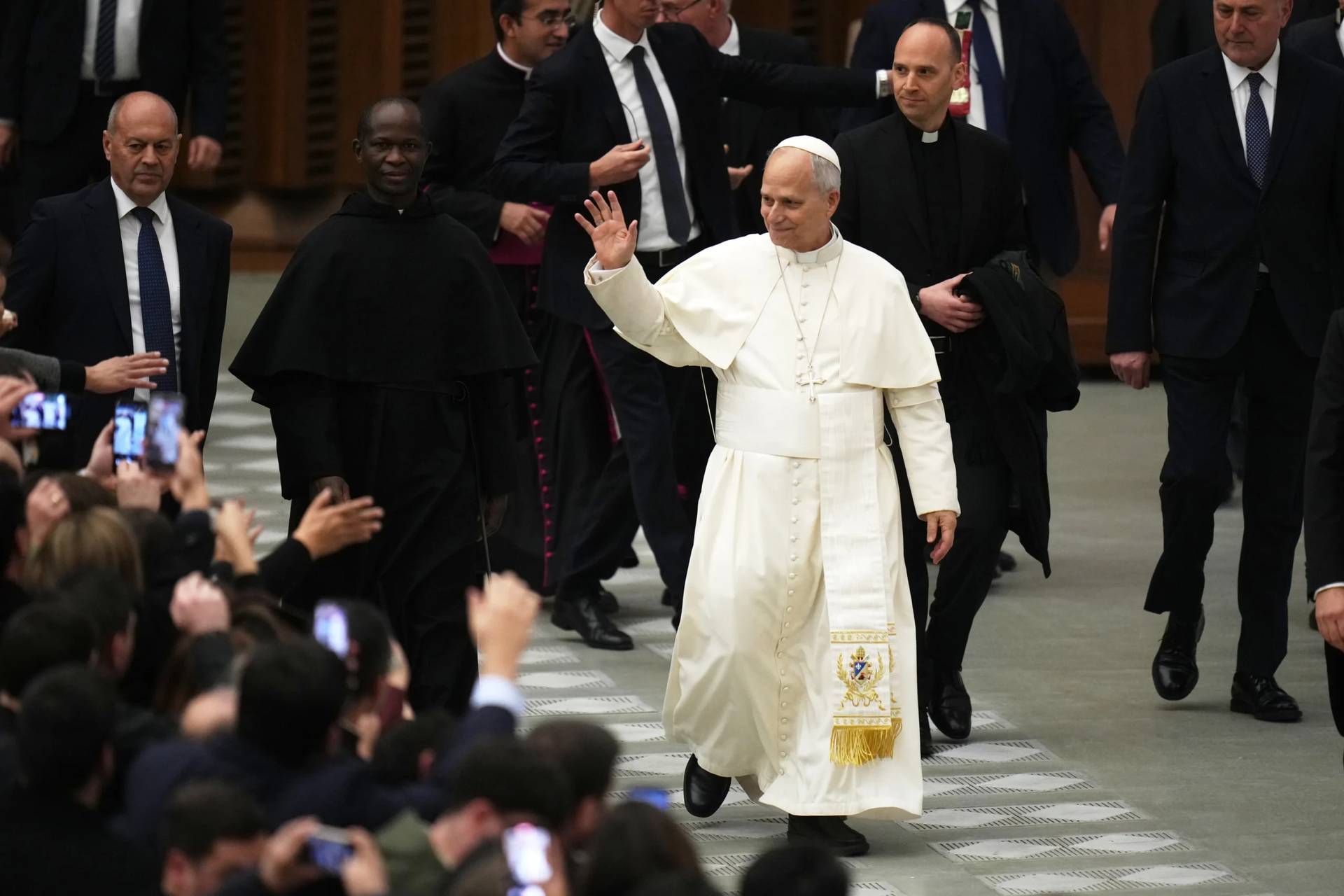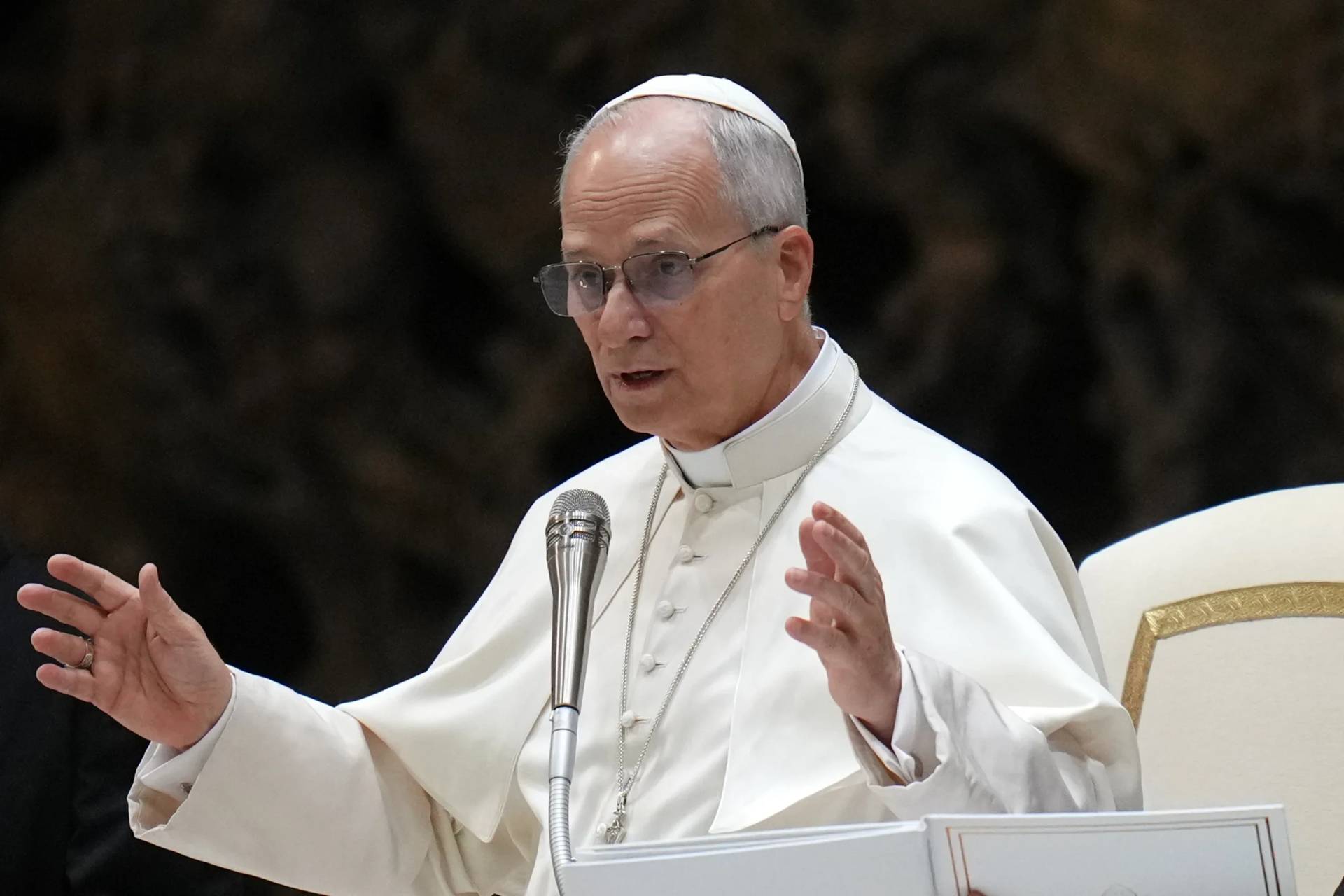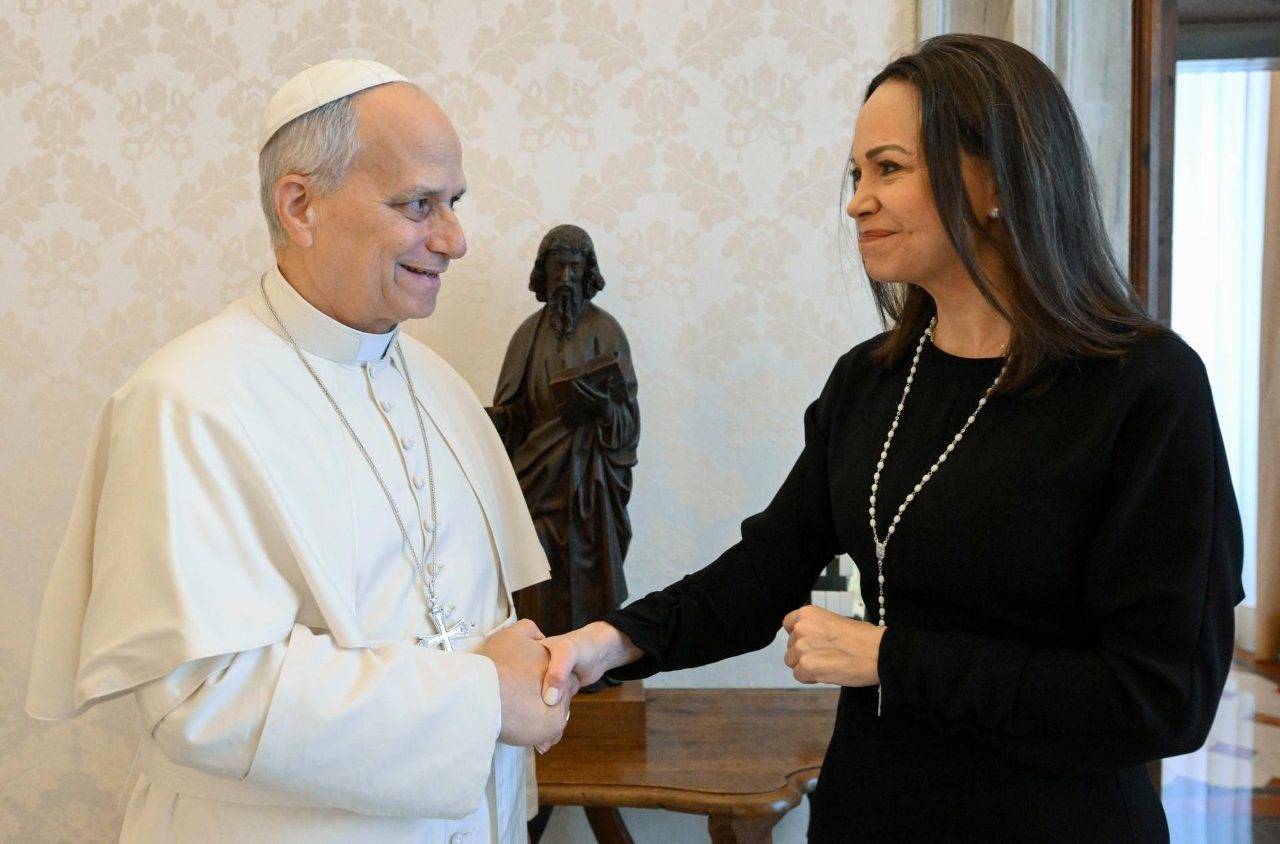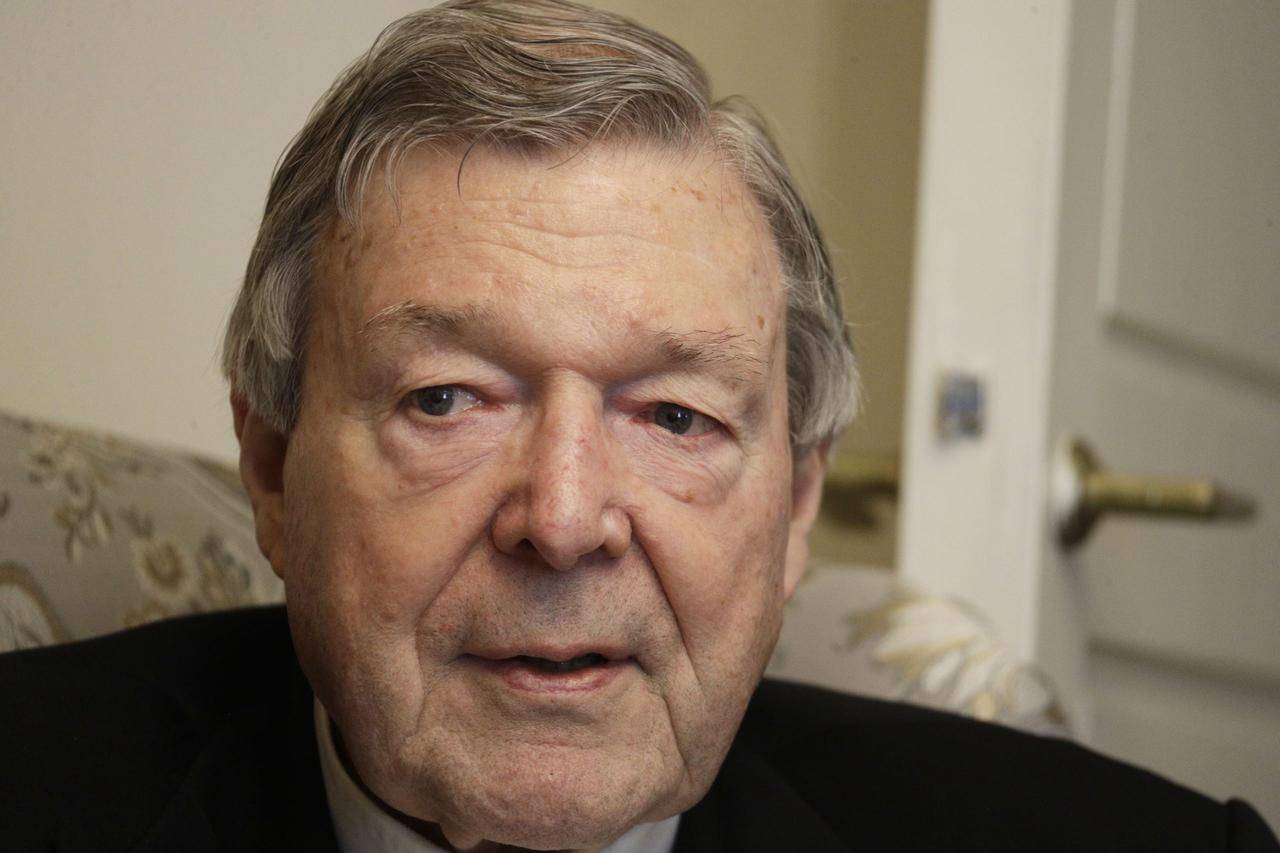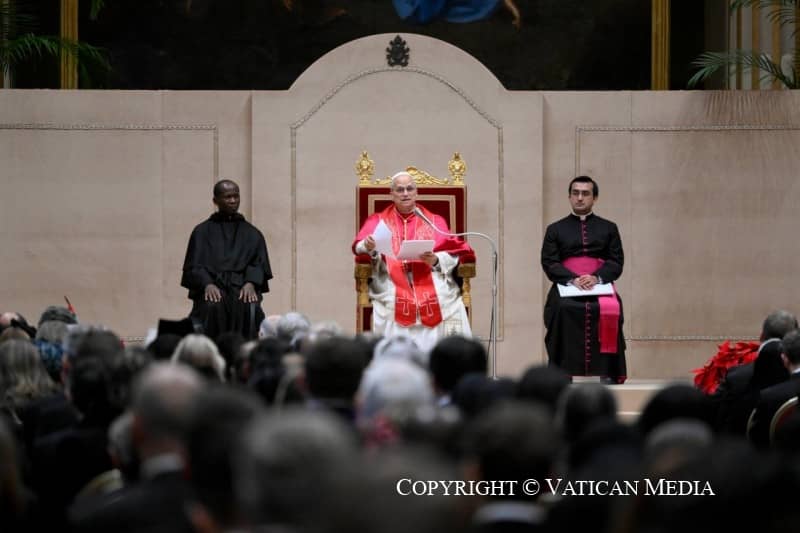ROME – Pope Francis on Friday appeared to wade into one of the most contentious liturgical debates in Catholicism in recent years, siding with his predecessor Pope emeritus Benedict XVI by insisting that Christ died “for many,” instead of using the phrase “for all.”
“The ‘many’ who will rise for eternal life are to be understood as the ‘many’ for whom the blood of Christ was shed,” Francis said. “They are the multitude that, thanks to the goodness and mercy of God, can experience the life that does not pass away, the complete victory over death brought by the resurrection.”
The quotation marks around the word “many” were used by the Vatican when distributing the text.
Francis argued that “for many” better captures the sense that human beings have to make a choice during this life, either for or against God.
“Awakening from death isn’t, in itself, a return to life,” the pope said. “Some in fact will awake to eternal life, others for eternal shame.
“Death renders definitive the ‘crossroads’ which, already here in this world, stand before us: The way of life, that is, the one that leads us to communion with God, or the path of death, that is, the one that leads us away from Him,” the pontiff said.
The pope’s words came during a homily as he was saying Mass for the eternal response of the 14 cardinals and bishops who’ve died in the past year. The list of cardinals includes American William H. Keeler, Indian Ivan Dias, German Joachim Meisner, Cormac Murphy-O’Connor from the United Kingdom, and Italian Carlo Caffarra.
The phrase “for many,” used both in the Gospel of Mark (14:24) and Matthew (26:28), has been debated repeatedly over the past two decades by liturgists, theologians, and others. Used in the Roman Mass during the Eucharist prayer with reference to the blood of Christ, its Latin original is “pro multis.”
The most recent English translation of the full quote currently is: “Which will be poured out for you, and for many, for the forgiveness of sins.”
When the Roman Missal was translated into the vernacular, many initial translations used “for all” instead of “for many” to represent the phrase pro multis. Hence, Catholics who had Mass in Italian, Spanish, Portuguese or German would say that Christ “came for all,” while the Polish, the Dutch or the French would say he came for “many.”
In 2006, the Vatican decreed that in translations of the revised edition of the Roman Missal published in 2002, the phrase was to be translated literally, as “for many.” The official version in English has been published, using that literal translation. However, that change for several other languages is still in the works.
The 2002 translations were to follow the Liturgiam Authenticam instructions issued on March 2001 by the Vatican’s Divine Worship office.
Among those still working on the translation, both Italians and Germans have opted to maintain the use of “for all,” delaying the translations. In 2012, then Pope Benedict XVI sent a letter to the German bishops’ conference, urging them to adopt the “for many” form, explaining that the “for all” was the result of a consensus among bishops after the Second Vatican Council, but that it was an “interpretation” more than a translation.
Benedict never argued the correctness of what he saw as an interpretation, writing that it was “a well-founded interpretation then as now.” Nevertheless, he insisted, it’s not a translation.
In the letter, the emeritus pope argued in favor of a certain flexibility in the translation, saying that one of the principles that led to it was making the liturgical books more accessible to the faithful, “so it seemed not only justifiable but even necessary to build interpretation into the translation and in this way to speak more directly to the listeners, whose hearts and minds these words were intended to reach.”
However, he continued, seeing that he would often say liturgical prayers in several languages, “it strikes me that the different translations sometimes have little in common and that often the common text underlying them can scarcely be detected.”
In September, Francis issued a motu proprio, meaning a legal document issued under the pope’s personal authority, called “Magnum Principium,” which pushed for the decentralization of the liturgical translation, and was seen by many as at least a partial reversal of Liturgiam Authenticam.
RELATED: Pope pushes decentralization on translation of liturgical texts
Some observers pointed out that this might give the German prelates the freedom to stay firm in their position, but Francis’s choice of words on Friday may suggest that on this particular point, they don’t necessarily have the pope’s backing.
It’s worth noting that Argentina’s missal translation was approved in 2007 and promulgated in Jan. 1, 2009, when then-Cardinal Jorge Mario Bergoglio, today Francis, was president of the bishop’s conference, using “for many.” The translation is valid for Argentina, Chile, Paraguay and Uruguay, though the Argentine version has its own changes unrelated to the pro multis.
During Friday’s homily, Francis reflected on life and death, saying that “a fundamental mark of the Christian is a sense of anxious expectation of our final encounter with God.”
Christ, Francis said, “accepted death in order to save those whom the Father had given him, who were dead in the slavery of sin.
“The faith we profess in the resurrection makes us men and women of hope, not despair, men and women of life, not death, for we are comforted by the promise of eternal life, grounded in our union with the risen Christ,” he added.
